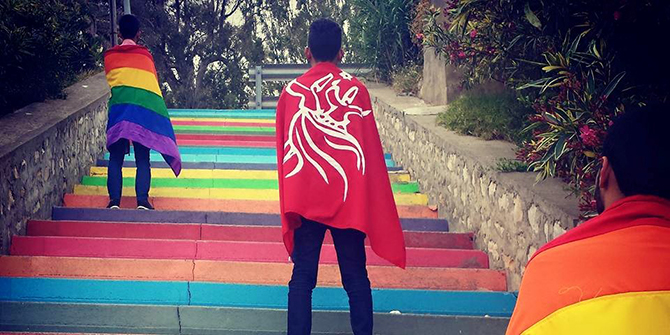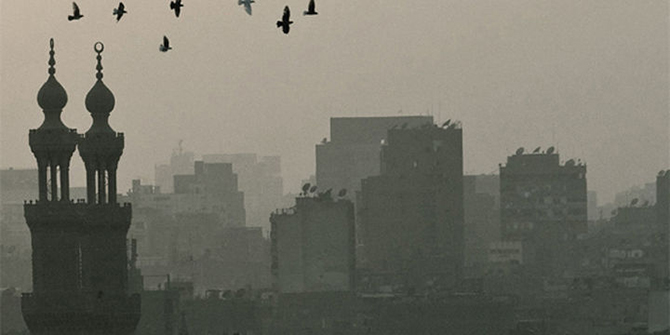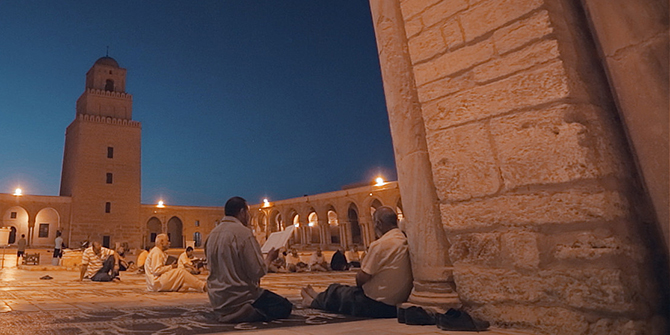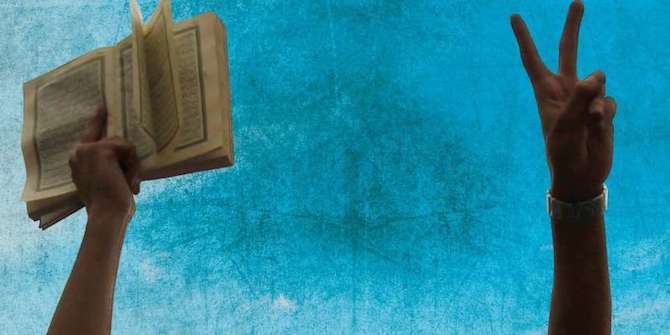by Guillaume Biganzoli
Tunisia’s harsh repression of homosexuals may endanger the hard-won democratic gains of the Jasmine Revolution, writes Guillaume Biganzoli in a piece originally published on The Caravel.

On 22 September, a 22-year old student named Marwan was sentenced under Article 230 of the Tunisian Penal Code to one year in prison for engaging in sodomy. Members of civil society and human rights organisations have denounced the use of this article, and have called for its abrogation. They consider it to be contrary to the protection of a ‘person’s dignity and physical integrity’ as guaranteed by Article 23 of the Constitution. The controversy has sparked contestation on social networks through the use of hashtags: #لا_لفحوصات_العار (No to the shame tests) and #لا_للفصل_230 (No to Article 230).
The most controversial element, however, remains the overall mystery surrounding the case. Sources from the Ministry of Interior have asserted to Business News that Marwan was part of a murder investigation and was allegedly a male prostitute. The murder victim was supposedly one of Marwan’s clients, and police used this to justify holding the young man in custody for six days and performing an anal test to obtain proof of his involvement.
According to the Ministry of Interior spokesperson Walid Louguini, the anal examination was performed with the accused’s consent. ‘It was he who asked for the examination’, added Louguini. However, his lawyer, Fadoua Breham, reiterated that Marwan was only a student and that the, ‘Consent of [her] client was not obtained’. She declared that they would appeal the judicial decision and sue the Ministry of Interior and Business News for defamation.
A 2013 Pew Research Center poll found that Tunisia has one of the lowest acceptance rate of homosexuality in the world (6%), and Amnesty International has documented numerous cases of arrests and prosecutions of homosexuals between 2009 and 2014. It seems likely that Marwan may have been coerced into undergoing the invasive test, and he may not be the only person who has been forced to do so.
In the wake of recent terrorist attacks, western countries have increased their support to Tunisia. The United States has doubled the amount of bilateral assistance to the country and has made Tunisia its newest ‘major non-NATO’ ally, allowing it to become a large recipient of US military equipment and assistance. Similarly, the European Union has announced greater counter-terrorism, economic, and judicial cooperation with Tunisia.
Tunisia deserves such foreign relief. Since the Jasmine Revolution of 2011, it has managed to organise free and fair elections, has witnessed a peaceful transfer of power between the Islamist Ennahda party and the secular Nidaa Tounes, and has created a new constitution guaranteeing gender equality and freedom of expression, while rejecting religious extremism. Changes to the penal code would make Tunisia truly worthy of its title of the ‘Arab (democratic) exception’.
Tunisia is today at a crossroad. As it leans closer towards the West through its tighter links with the US, the EU, and NATO, Tunisia must assert its position in the region as the leading democracy in the Middle East. This status would further enhance Western support in order to fight off terrorism and strengthen its wavering economy. But, the West needs Tunisia too. A fully-democratic Tunisia would not only provide a regional model to other Arab countries, but would also help re-legitimise the role of the United States in the Middle East.
Tunisia should take advantage of such opportunities and further develop its democratic transition. The depenalisation of homosexuality would go a long way towards achieving such a goal. Most importantly, it would blot out a nasty stain on the country’s tainted human rights record and would set Tunisia apart from its other Arab counterparts.
 Guillaume Biganzoli is a senior student at Georgetown University and Sciences Po Paris and a Tunisia Research Intern at the Project on Middle East Democracy (POMED) in Washington, DC. He publishes the POMED Tunisia Weekly Update. He tweets at @GuillaumeBgz.
Guillaume Biganzoli is a senior student at Georgetown University and Sciences Po Paris and a Tunisia Research Intern at the Project on Middle East Democracy (POMED) in Washington, DC. He publishes the POMED Tunisia Weekly Update. He tweets at @GuillaumeBgz.






